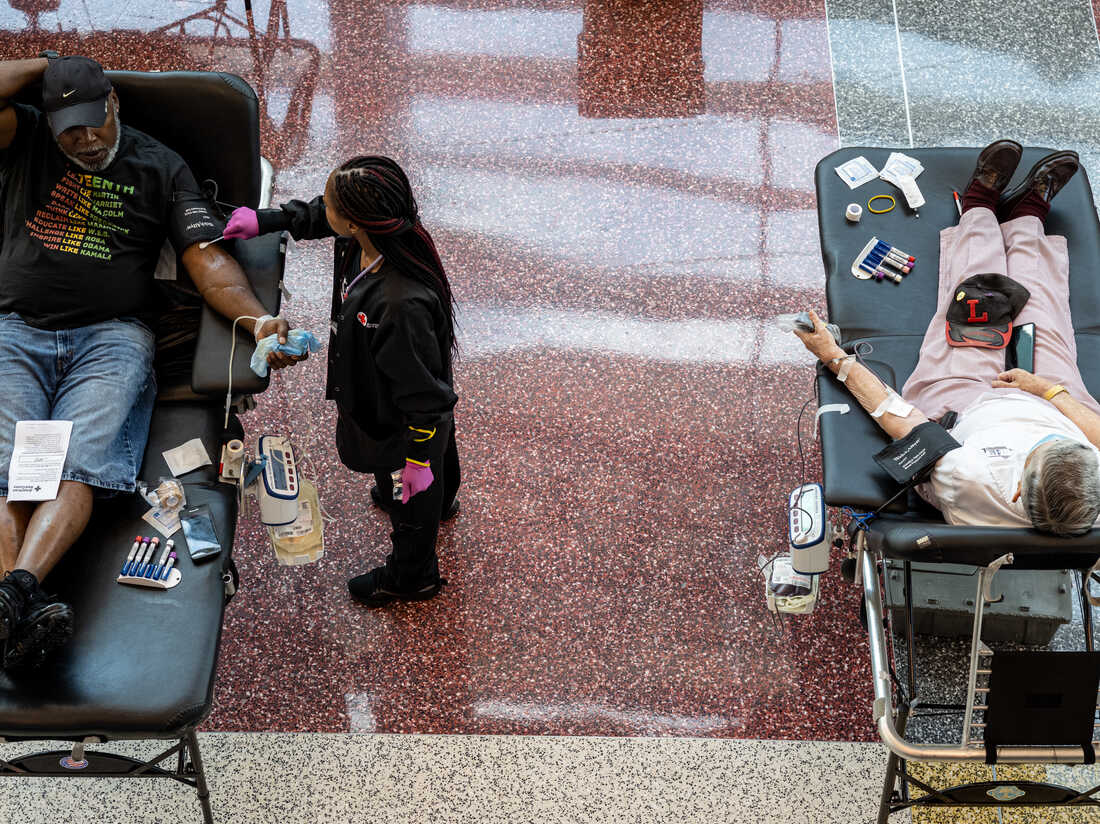Doctors and patients are facing tough choices because of the national blood crisis
Enlarge this image A phlebotomist tends to a blood donor during the Starts, Stripes, and Pints blood drive event in Louisville, Ky., in July. Rising numbers of organ transplants, trauma cases, and elective surgeries postponed by the COVID-19 pandemic have caused an increase in the need for blood products. Jon Cherry/Getty Images Jon Cherry/Getty Images Dozens of hospitals and trauma centers across the country say they're in dire need of blood donations after what the American Red Cross is now calling a nationwide blood crisis. The Red Cross said in a statement this week that the dangerously low blood supply levels are posing a concerning risk to patient care, resulting in medical staff making difficult decisions on who receives blood transfusions and who will need to wait until more blood is readily available. In recent weeks, the Red Cross — which provides nearly 40% of the nation's blood — said it had less than a one-day supply of critical blood types and has had to limit blood product distributions to hospitals. The organization says that at times, up to one-quarter of hospital blood needs are not being met. Additionally, the pandemic has also contributed to a 62% drop in blood drives at schools and colleges. "Winter weather across the country and the recent surge of COVID-19 cases are compounding the already-dire situation facing the blood supply," said Dr. Baia Lasky, medical director for the Red Cross. In Los Angeles County, health officials said one of its trauma centers, Harbor-UCLA Medical Center, had to close its doors for a couple of hours earlier this week because of the blood shortage — a step county officials said it had not taken in more than 30 years.


